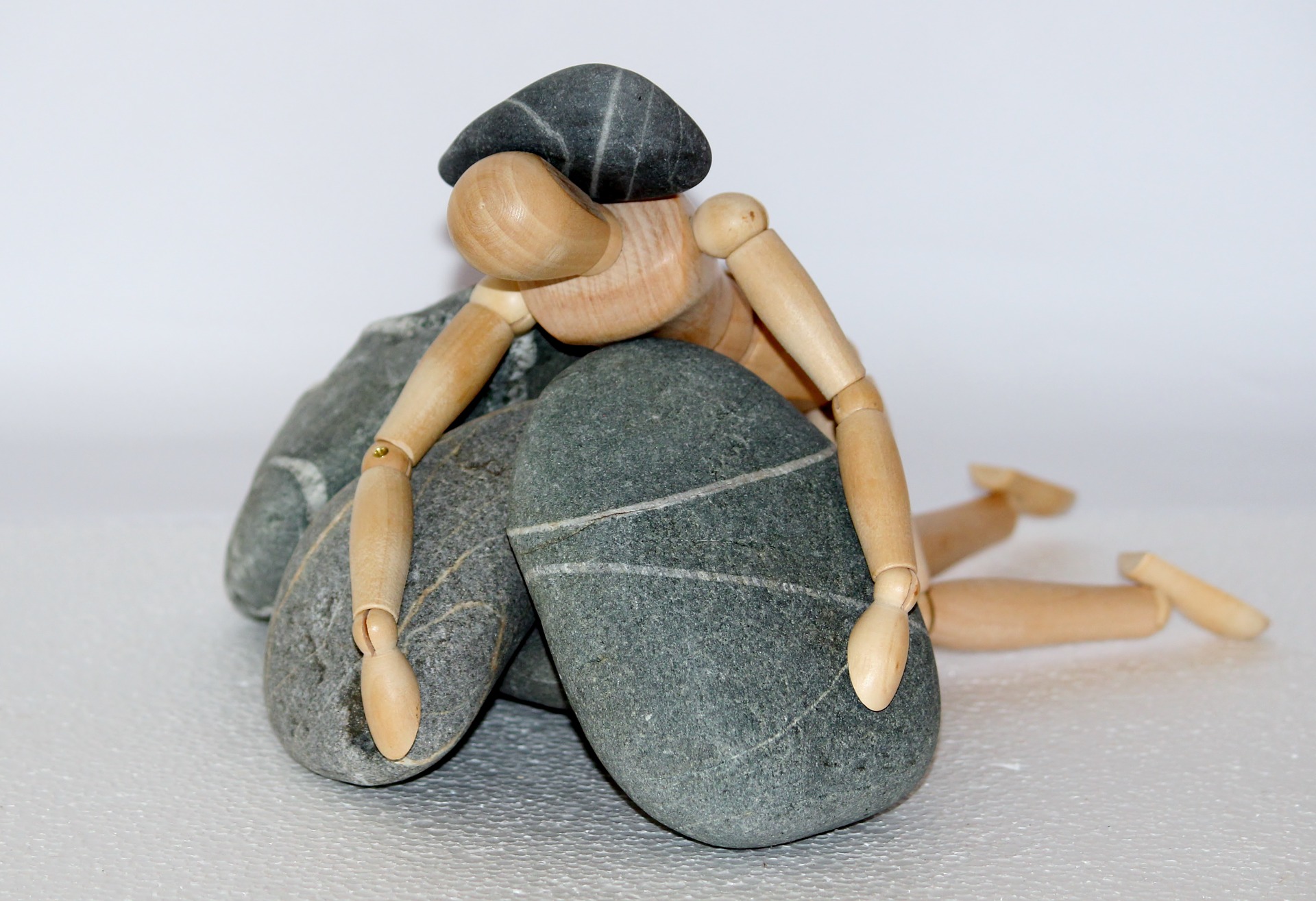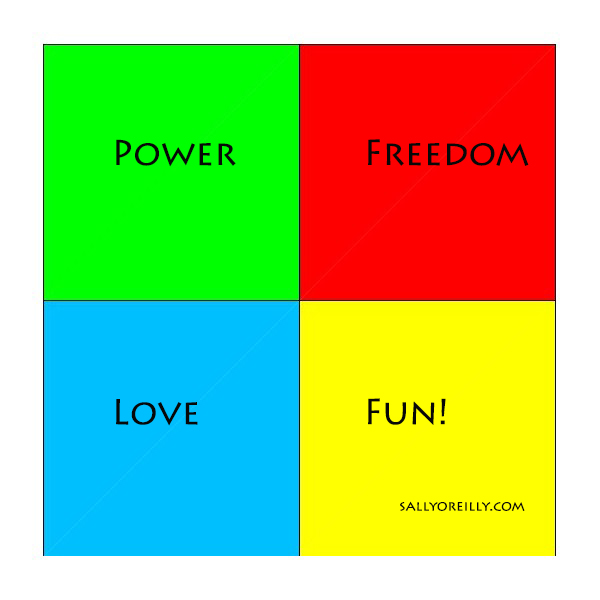It’s always nice to hear from a previous client.
As therapists, we have a privileged opportunity to share a precious part of our clients’ journey through pain, crisis, vulnerability – but we usually do not get to hear about the “what happened next?”. Often, after the work is ‘done’, our minds wander back to our clients and we can only hope that things are going well. Hope that our relationship however brief, had some positive influence, that they are happier now.
Yesterday I received an email from one such person looking for some paperwork. In it, she mentioned that she was striving not to lose sight of her basic needs. This really struck me. This was one of the cores of our work together – identifying, and then meeting her basic needs. Helping clients learn how to identify and meet their own needs is a common core of therapeutic work. Very common. And clearly, this is a part of the work that ‘stuck’ with this client.
You might think that her use of the word ‘striving’ sounds as though she is struggling – but it is appropriate in this context, and not a cause for concern at all. We are not routinely taught how to do this and so it can feel like a struggle. If only we had a manual!
(If such a manual existed would you buy it? ‘Cos we sure would ;))
Prompted by that email from a former client, we decided to write this piece, because the issue of basic needs is such a common one for our clients. And since our clients are regular people, we guess that this may be of help for you, too!
What is the connection between meeting needs and happiness?
There is a branch of psychotherapy called Reality Therapy. One of the very valuable tools that it provides is a neat little framework for figuring out how to identify and then meet your basic needs.
The more you attend to your own needs, the more likely you are to be happy (simplifying here.. but that really is the core idea). And we all know that the happier we are, the easier it will be to meet the needs of anyone who depends on you.

Remember: No-one can lean on you if you’re already bent over.
So reality therapy identifies four basic needs (apart from the most basic – physical survival): Power, Belonging, Freedom & Fun. When we meet these needs we avoid psychological distress, pain, feeling awful, feeling depressed, lonely, call it what you will, you know how it feels! And so often, simply being aware of these needs and figuring out what we can do to meet these needs on a daily basis can enormously improve our sense of life-balance and wellbeing.
It seems so simple: Making sure our needs are met means we will feel happier!
Many would say that making sure their own needs are met is what ‘selfish’ people do all the time. However, ‘selfish’ people are often not happier at all. The problem is often that people who seem to be ‘selfish’ are trying to fill a single need (for example, ‘Power’) to the exclusion of the other three, and/or are trying to fill their needs in ways that are causing more problems (e.g., trying to fill the need for ‘Power’ by acting in ways that diminish power in others).
In fact, we often work with clients so that they become MORE selfish: more aware of what their emotional needs are, and how to get these needs met in a balanced way.
Let’s understand these four basic emotional needs:

- Power: Power is a word that has a bad reputation. We are inclined to think of power as malevolent – power ‘over’ people or things. What we’re talking about here though is personal power. Power we exert within ourselves over our choices and thoughts by doing anything that gives us a sense of win, or achievement, competence. A feeling of “I can do this!”. This might be giving a talk, making a lovely card, fixing a broken cup.. We all have areas of competence, the trick is to recognise and not dismiss or minimize them. What feels easy to you might feel terribly difficult to someone else!
- Love / Belonging: This need refers to feeling a part of something that involves others. It can mean romantic love but not exclusively as some might assume! We can feel loved by friends and family, but we can also have a deep sense of belonging and acceptance with work colleagues, or other types of groups (e.g., spiritual, hobby or sport groups). There are many options open to us, if we choose to engage. ‘Choose’ being the operative word here. An advantage of social media is that it has increased our connection options greatly. So while online contact isn’t the same as face to face, it is still contact, and might be all you have in a given day. And taking part in a forum or Facebook chat might indeed meet your need for belonging on a given day. Indeed, the universal need for belonging explains how quickly Facebook and Twitter grew!
- Freedom: This need is about independence. We need to have space, the freedom to choose to maintain that space, to feel autonomous. If we are constrained in one area of your life it’s important to fix that elsewhere by doing something that allows you to feel personal freedom. For example: If you are tied to a 9-5 job that requires you to follow a lot of rules, you might find an outlet painting murals on the weekends. It’s not about having the right to break laws or rules – it’s more about the right to make personal choices, have personal opinions. To not be overpowered by others. And to remain responsible. Freedom and responsibility co-exist when we are in a healthy place. One without the other causes pain, one way or another.
Have you allowed yourself to feel free today?
- Fun: This is one that we as adults tend to neglect a lot. Here’s something to try if you have a child nearby – ask them to pretend they’re a grown up and watch what they do with their face. What you’ll most likely see (it’s a little depressing when you notice..) is the child will look more rigid and serious, maybe even frown. What’s that about?
We tend to associate fun with ‘childlike’ or the more judgey ‘childish’. But a life without fun is… not fun. We need to (allow ourselves to) continue to play, to explore, to feel enjoyment and pleasure in whatever ways work for us personally.
For some people this will be dancing or running and for others it will be playing an instrument, reading, chatting to a friend or simply relaxing. Whatever it is, we invite you to think about it and ask yourself honestly:
When was the last time you had fun?
How do I begin to get my needs met?
After reading all of the above, did you notice what was missing? Did you notice that at no point was there a mention of how other people are responsible for you getting your needs met?
That is because the only person who can make sure your needs are met is… you guessed it – YOU!
Here’s some simple homework for you to do:
1:Take a sheet of paper, draw a cross through the middle to divide it into four equal sections, and write down each of the four needs in each section.
2: Ask yourself what you are willing to do tomorrow to meet each of these needs. Write a specific example(s) in each section.
3: When tomorrow comes (heck, why wait for tomorrow?), do each of the four things you listed.
4: Repeat daily, until satisfying your own needs becomes second nature!
5: Enjoy feeling better!
- *This piece was first posted on sister site TwoWiseChicks
